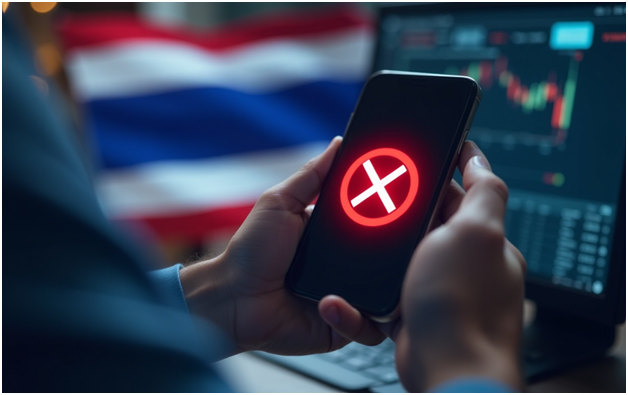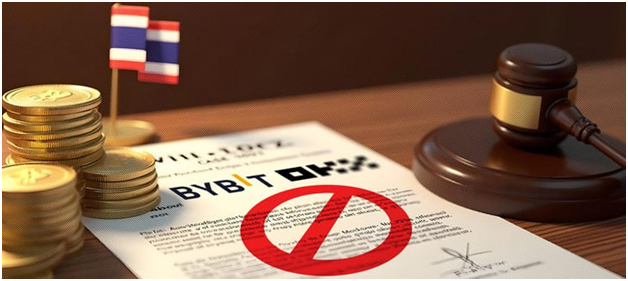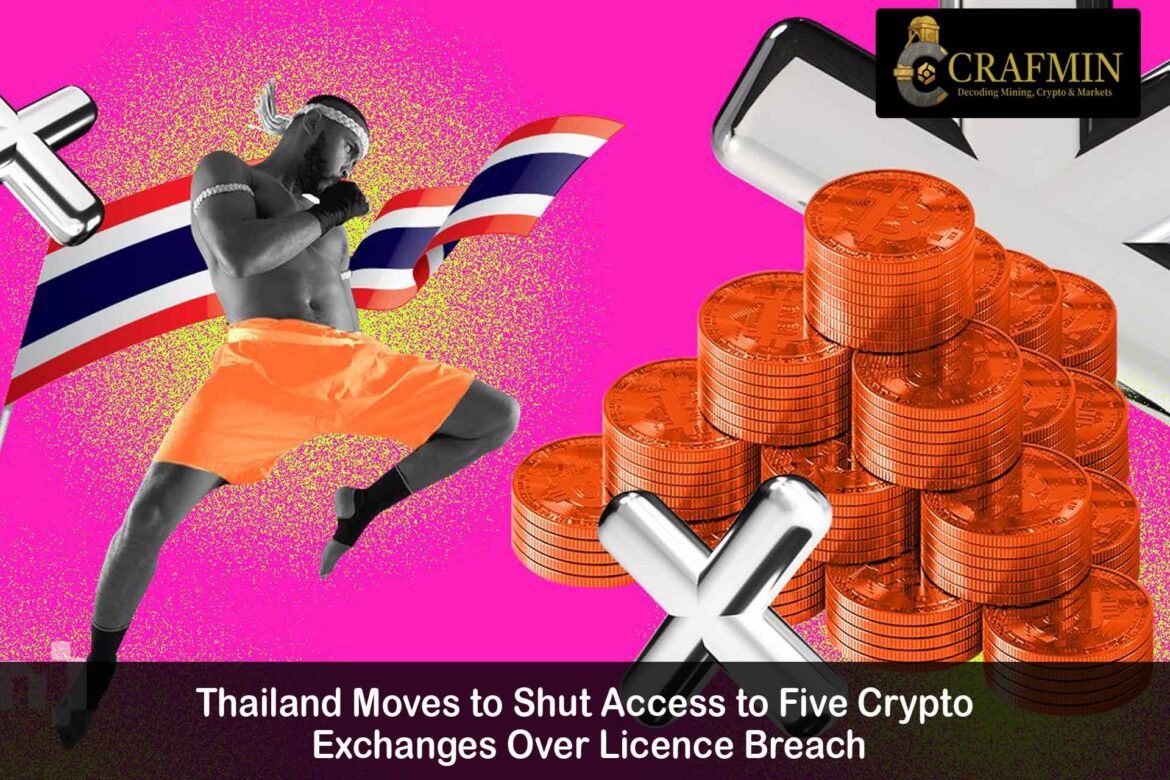Thailand to Block Access to Five Crypto Exchanges in June
Thailand is preparing to block access to five major cryptocurrency exchanges, including Bybit and OKX, following a directive from the country’s Securities and Exchange Commission (SEC). The decision is based on findings that these platforms have been operating without official authorisation and may pose risks related to money laundering.
According to the SEC, the websites for Bybit, 1000X, CoinEx, OKX, and XT.COM will be inaccessible nationwide starting 28 June 2025. The SEC says these platforms are engaging in digital asset trading activities without permission under Thailand’s Digital Asset Business Act B.E. 2561. It has passed the matter to the Economic Crime Suppression Division for further legal action.

Image 1: Thailand Block Access to Five Crypto Exchanges (Source: Invezz)
Platforms Face Block for Unlicensed Operations
The decision to block these platforms is supported by a new law, the Royal Decree on Measures for the Prevention and Suppression of Technology Crime (No. 2) B.E. 2568, which took effect on 13 April 2025. Under this decree, Thailand’s Ministry of Digital Economy and Society has the authority to restrict access to unauthorised digital services. This includes unlicensed digital asset trading platforms that may be used as channels for financial crime.
After reviewing the services provided by the five exchanges, the SEC found that none of them had registered or received permission to operate in Thailand. Despite their global presence, their activities in the country were not in compliance with Thai law. To protect local users, the SEC submitted the platform details to the Ministry of Digital Economy and Society, which will enforce the access ban beginning in late June.
Authorities say the action is necessary to prevent unauthorised platforms from becoming tools for money laundering by fraudsters. The SEC believes that platforms not regulated under Thai law could be used for illegal purposes and place investors at risk of losing funds without any legal protection.
The SEC is now warning investors who use any of the named platforms to take appropriate steps to manage their assets before access is restricted. Users may be unable to retrieve their assets after 28 June, when the websites are expected to be blocked. The commission also reminded the public to be cautious when dealing with platforms that do not hold the proper licences.

Image 2: Thai SEC banned five crypto exchange (Source: PRO BLOCKCHAIN)
Risks to Investors and the Public
According to the SEC, investors who use unlicensed digital asset businesses in Thailand are not protected by law. This lack of regulation increases the chance of fraud and could make it easier for offenders to move money through digital platforms. The SEC is urging the public to avoid engaging with services that operate without local oversight, as doing so could lead to both financial loss and exposure to criminal activity.
This announcement follows recent changes made by the Thai government aimed at improving digital asset oversight. In early April, Thailand’s Cabinet approved amendments to emergency decrees related to digital assets and cybercrime. These updates are meant to stop foreign crypto platforms offering peer-to-peer services in Thailand without meeting regulatory standards.
The changes also treat such platforms as digital asset exchanges under the country’s laws.
As a result, foreign platforms must now comply with the same rules and requirements as domestic operators if they want to offer services to Thai users. These measures are designed to create a safer environment for those investing or trading in digital assets within the country.
Read More: Bybit Secures MiCA Licence in Austria, Launches EU Headquarters in Vienna
Thailand’s Broader Approach to Digital Assets
While Thailand is acting strongly against unlicensed platforms, it is also showing interest in adopting blockchain and digital financial services in a controlled way. Earlier in May, reports suggested that the government was looking to allow tourists to spend cryptocurrency through platforms linked to credit cards. This is part of a larger effort to update the country’s financial system and explore the benefits of digital innovation.
Thailand’s Ministry of Finance is also said to be planning the release of digital investment tokens worth around $150 million. These tokens would allow regular investors to purchase government bonds using blockchain-based tools, offering a new way for the public to take part in the financial system.
In March, local authorities approved the use of stablecoins such as Tether’s USDt and Circle’s USDC. These stablecoins are now allowed to be traded on regulated exchanges throughout Thailand. The decision supports the growth of the crypto sector while ensuring that the platforms involved are properly supervised.
Despite its efforts to support digital asset development, Thailand continues to focus on regulation and investor protection. By blocking access to exchanges that do not meet local standards, the country is reinforcing its message that only licensed services can safely operate in its digital asset market.
Investors using Bybit, 1000X, CoinEx, OKX, or XT.COM are advised to move their funds and stop using these platforms before 28 June. Once the Ministry of Digital Economy and Society enforces the block, access to these websites will be cut off nationwide.

